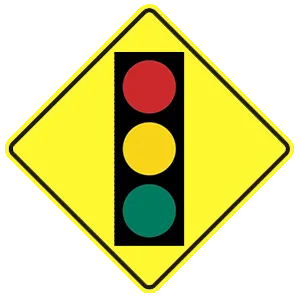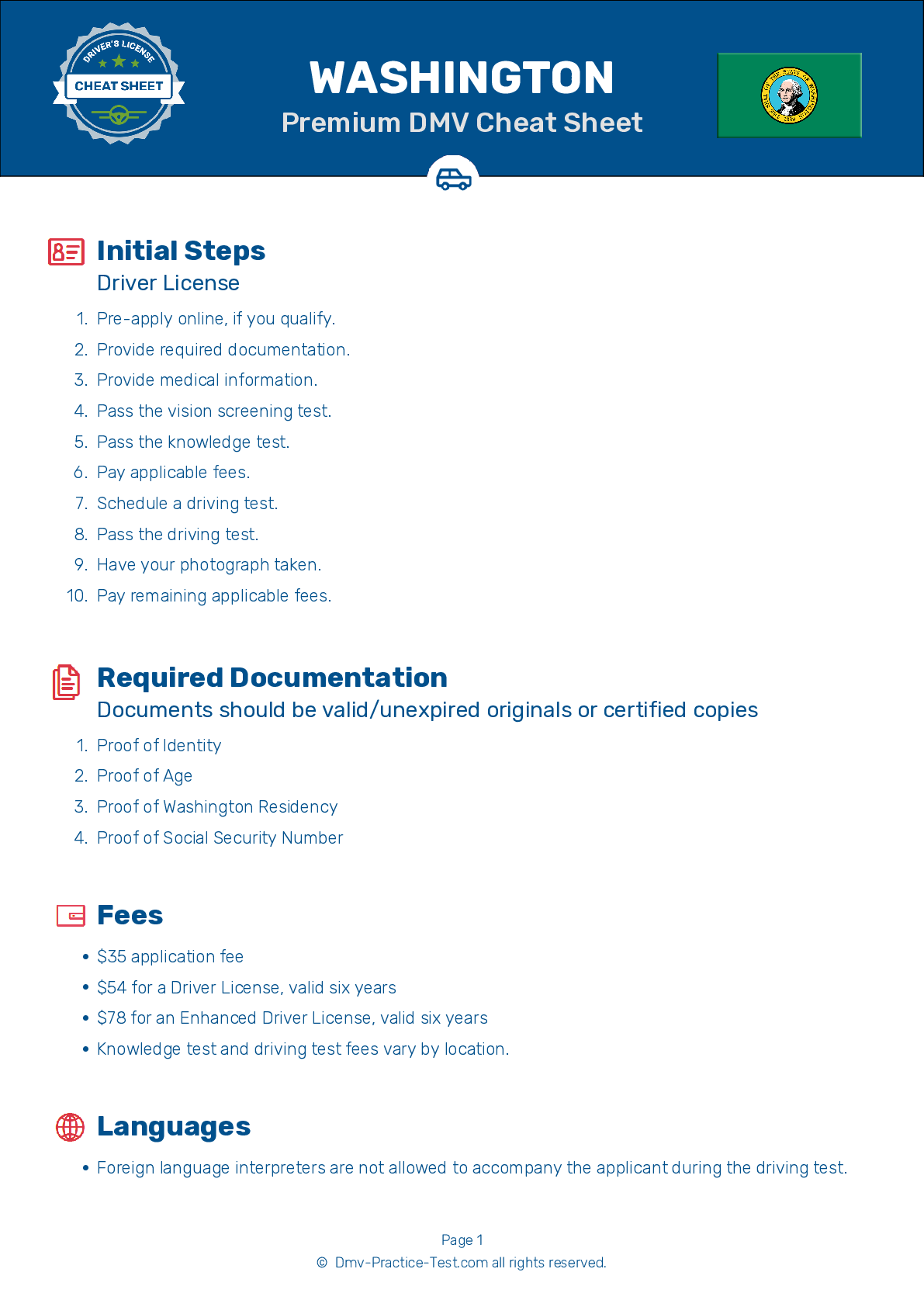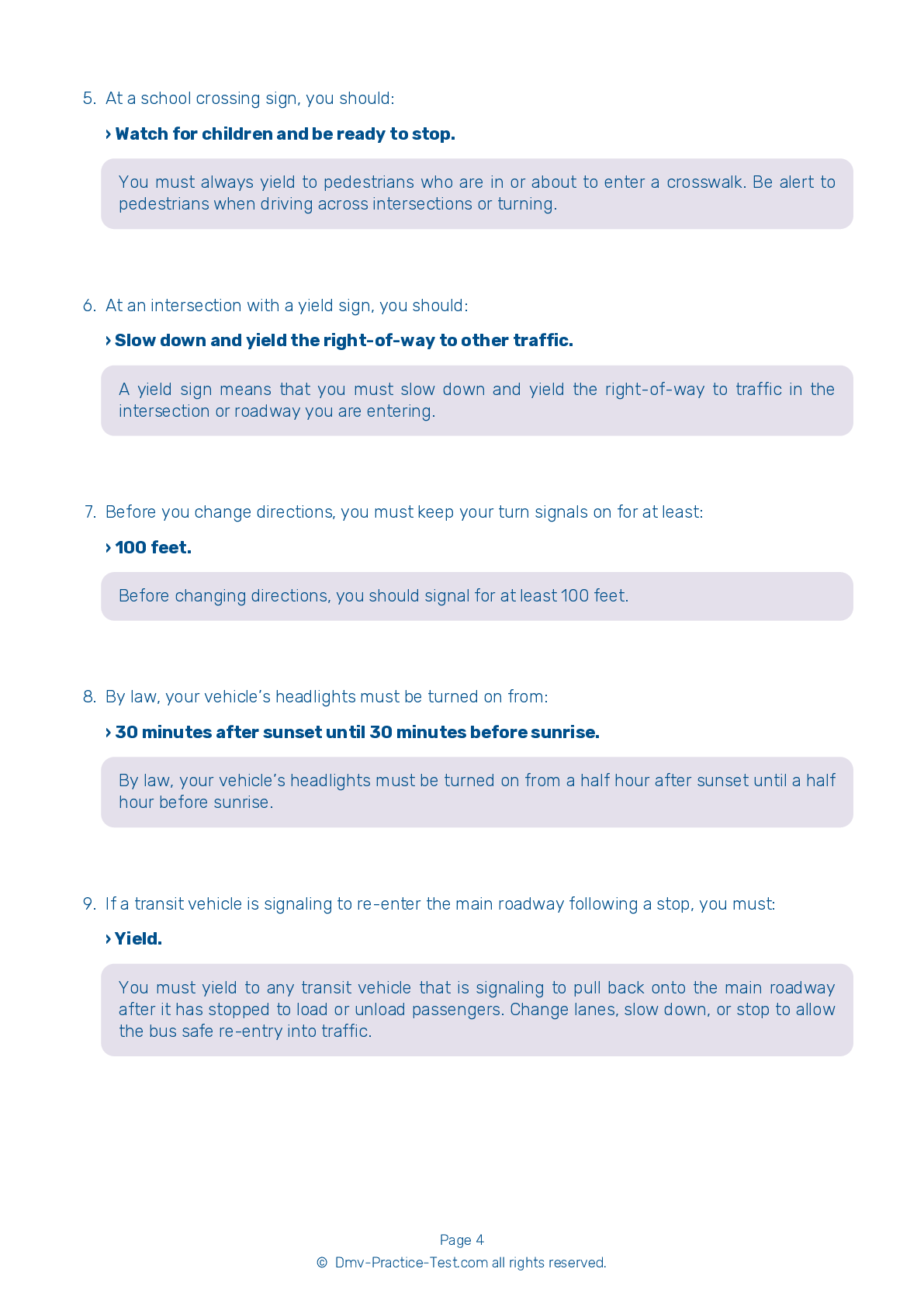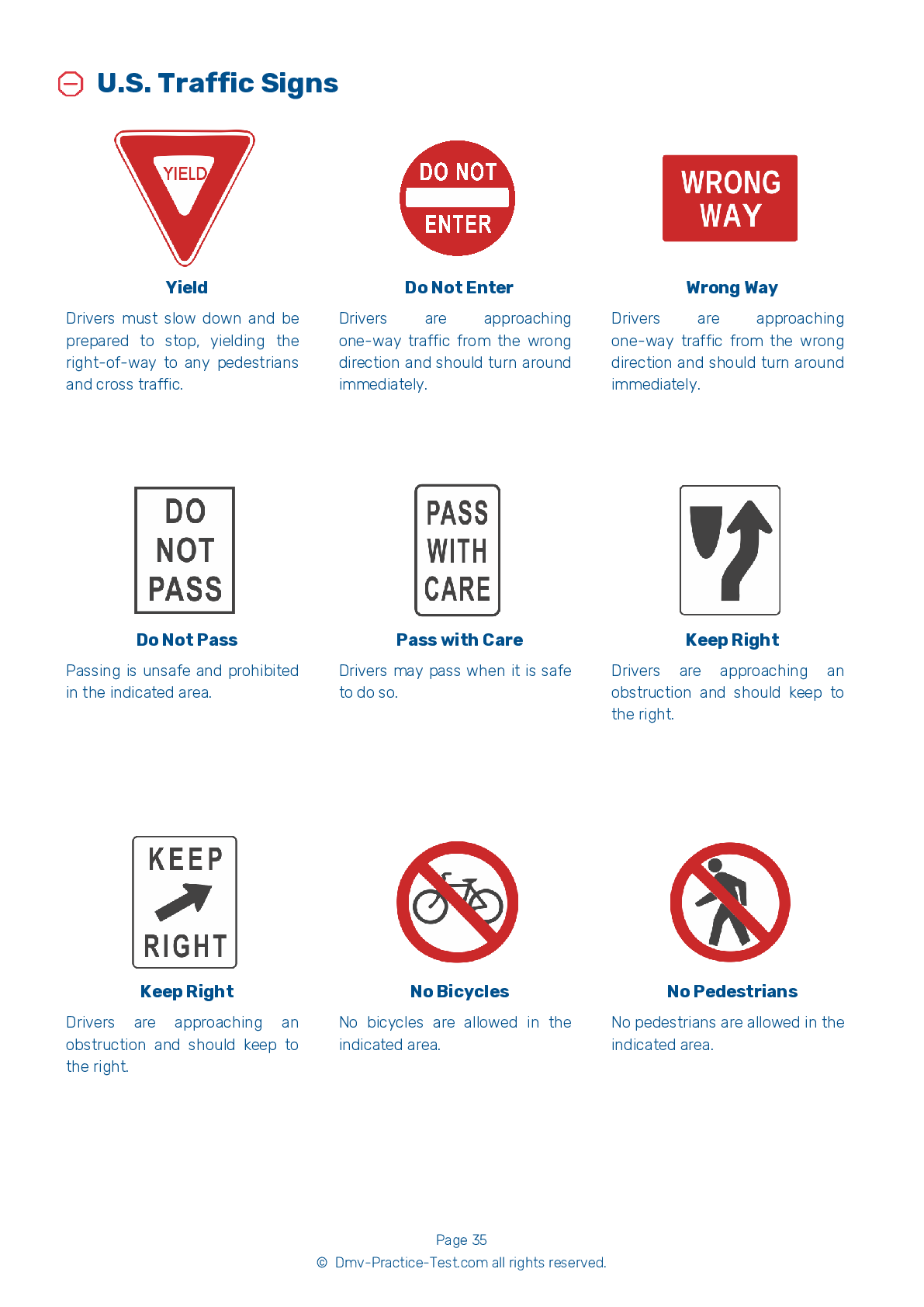FREE Washington DMV Practice Test #2
The Washington DMV practise examinations have been updated for January 2026. It includes questions based on the Washington Driver Handbook's most significant traffic signals and legislation for 2026. Use actual questions that are very similar (often identical!) to the DMV driving permit test and driver's licence exam to study for the DMV driving permit test and driver's licence exam.
On the practise exam, each question gets a tip and explanation to help you remember the concepts. The written component of the official Washington DMV test will feature questions about traffic rules, traffic signs, and driving statutes, as well as knowledge from the Driver Handbook.
To obtain a passing grade, you must correctly answer 20 of the 25 questions. Use the practise exam provided by the Washington Department of Motor Vehicles to help you prepare for your instruction permit or driver's licence.
The DMV exam is available in several languages.
Using any kind of testing assistance will result in an automatic fail, and the DMV may take additional action against your driver's licence, so stay away from it.
2 . When encountering an aggressive driver, you should:
If another driver is threatening you or intentionally driving dangerously around you, remain calm and try to put as much distance between the two of you as possible. Slow down and let them pass. Do not make eye contact and do not make obscene gestures.
3 . An octagonal sign is always a:
Octagonal signs are always stop signs. Come to a complete stop when approaching a red, eight-sided sign.
4 . If your vehicle begins to skid, you should:
If your vehicle begins to skid, remain calm. Steer in the direction that you want to go and try not to overcorrect.
5 . A traffic signal showing a steady red light means:
A steady red traffic light means drivers must come to a complete stop. You must wait until the traffic light turns green and there is no crossing traffic before you move ahead.
6 . The best way to deal with tailgaters is to:
Check the traffic behind you several times a minute to know if another driver is tailgating, approaching too fast, or trying to pass. If another car is following you too closely, slow down and let it pass. Most rear-end collisions are caused by vehicles following too closely.
Need Car Insurance? No problem!
Compare the best rates in Washington and find a personalized policy that meets your needs.
1. Are You Currently insured ?
2. Married ?
3. Do you own your Home?
4. Do you have more than 1 car ?
5. Have you or a Family Member Honorably Served in U.S. Military ?
6. Your Name
7. Age
8. Zip code
IMPORTANT REMINDER:Auto Insurance is Mandatory to drive in Washington. Get covered before you hit the road to avoid any fines.
Ranked by best match
2026 Washington | Frequently Asked Questions
1. Complete a driver education course if you're under 15 ½.
2. Visit a driver licensing office.
3. Provide proof of identity, Social Security number, and residence.
4. Pass the knowledge test.
5. Pay the required fee.
6. If you're under 18, a parent or guardian must sign the application.
Remember, with a permit, you must always have an adult 21 years or older in the car with you.
1. Not checking mirrors and blind spots.
2. Incorrect signaling or forgetting to signal.
3. Lack of steering control.
4. Improper lane positioning and changing.
5. Not following traffic signs or signals.
6. Inadequate observation at intersections.
7. Speeding or driving too slowly.
8. Failing to yield the right of way where necessary.
Remember, practice is key to overcoming these errors.




